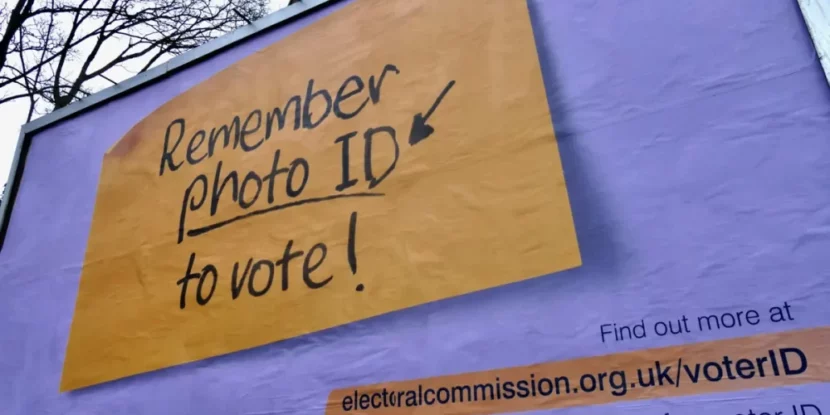The entire United Kingdom will have mandatory photographic identification requirements for voting in the nation’s May elections this year.
The Elections Act (2022) requires that voters in Great Britain show photo ID before being issued their ballot paper in polling stations nationwide. This follows in the footsteps of most other countries, such as France, Germany, Canada, Italy, and Israel, all of which have successfully eliminated mass voter fraud.
Election Integrity.
Britain’s Electoral Commission highlighted the nation’s prior lack of identification requirements as an “actual and… perceived weakness” of the voting system in the UK. The introduction of photo ID forms part of the governing Conservative Party’s stated aim of “protect the integrity of our democracy”.
In a public policy paper called “Protecting the Integrity of Our Elections: Voter Identification at Polling Stations and the New Voter Card,” government minister Kemi Badenoch argued: “[s]howing photographic identification is a reasonable and proportionate way to confirm that someone is who they say they are when voting, thus stamping out the potential for voter fraud to take place and giving electors the confidence that their vote is theirs and theirs alone.”
Leftist Criticism.
The far-left Labour Party’s deputy leader Angela Rayner called the move a “blatant attempt to rig democracy in favour of the Conservative Party.” Her complaint was along the same lines used by anti-ID campaigners in the United States: that the measure disproportionately affects minorities and younger voters. For Rayner, it amounts to “an assault on our hard-won rights.”
POLITICO reported that opponents “claim the laws ‘suppress’ marginalized groups who are less likely to possess required documents”. However, this neglects to mention that anyone of voting age in the UK may apply to their local council for a free ‘Voter Authority Certificate’.
If not, there are 22 other acceptable forms of authenticating one’s identity, according to the Electoral Commission. Despite corporate media implications, and similarly to the United States, no discrimination in English law prohibits ethnic minorities from applying to their local council for a valid ID.
Voter ID pilots began in the UK in 2018.
Politicization of Voter ID.
These voting alterations come at a time when voter ID is a highly politicized topic, leaving America as one of the only remaining countries that refuses to compromise.
Only recently did Ohio, for example, introduce some of the “strictest voter ID rules in the country,” according to the Guardian. The new laws require certain forms of ID that around 98 percent of Ohioans possess. If not, anyone in the state may still apply for an authorized ID card – a similar scheme to the UK.
The University of Notre Dame released a study this year that showed that ID “motivated supporters of both parties equally” and has “little overall effect on the actual outcomes of… elections”.



